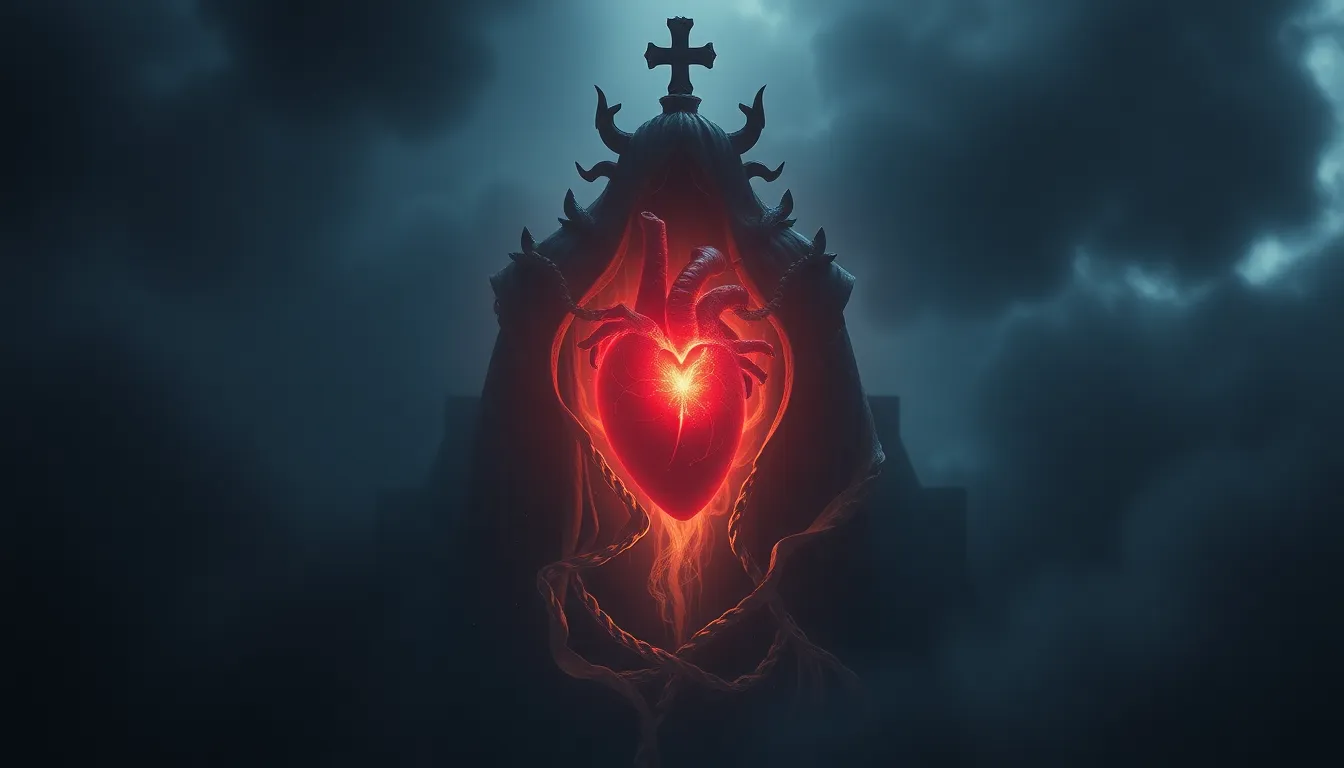The Sacred Heart: The Core of Mythical Locations
Introduction to the Sacred Heart
The Sacred Heart is a symbol that transcends mere religious connotation, representing profound love, compassion, and sacrifice. Across various cultures, the Sacred Heart serves as a focal point for spiritual devotion and is often intertwined with mythical locations that hold significant cultural and historical importance. This article delves into the multifaceted nature of the Sacred Heart, exploring its origins, symbolism, and its connections to mythical realms.
Historical Context of the Sacred Heart
The origins of the Sacred Heart can be traced back to Christian traditions, particularly in the context of Catholicism, where it is associated with the heart of Jesus Christ. The devotion to the Sacred Heart gained prominence in the Middle Ages, particularly through the works of saints like Margaret Mary Alacoque, who received revelations about the heart of Christ.
Over the centuries, the symbol of the Sacred Heart has evolved, taking on various forms and interpretations. It has become a universal emblem of love and redemption, influencing art, culture, and spirituality throughout history.
The Symbolism of the Sacred Heart
The Sacred Heart symbolizes a range of concepts, including:
- Love: The heart represents divine love for humanity.
- Devotion: It signifies a deep commitment to faith and spirituality.
- Sacrifice: The heart is often depicted with thorns, symbolizing the suffering endured for love.
In various mythologies, the Sacred Heart is interpreted through different lenses, embodying themes of renewal and transformation. For instance, in certain indigenous cultures, the heart is seen as the center of emotion and spirituality, linking it to the earth and the cosmos.
Mythical Locations Associated with the Sacred Heart
Numerous mythical locations are linked to the Sacred Heart, often serving as pilgrimage sites where believers seek solace and connection. Key locations include:
- Sacré-Cœur Basilica, Paris: A prominent church dedicated to the Sacred Heart, located on the highest point in the city.
- Montmartre: The surrounding area of Sacré-Cœur, steeped in history and artistic legacy.
- La Salette, France: A site of Marian apparitions that emphasizes the heart’s importance in spiritual devotion.
Each of these locations offers unique insights into the significance of the Sacred Heart in different cultural and spiritual contexts.
The Sacred Heart in Literature and Folklore
The Sacred Heart has inspired countless literary works, from poetry to novels, often symbolizing hope and redemption. Notable examples include:
- The Sacred Heart by Paul Claudel: A poetic exploration of love and faith.
- The Heart of the Matter by Graham Greene: A novel that delves into the complexities of morality and the human spirit.
Folklore surrounding the Sacred Heart often features legends that highlight its miraculous nature and the transformative power of love. Stories of healing and divine intervention are prevalent, enriching the cultural tapestry surrounding the Sacred Heart.
The Sacred Heart in Art and Architecture
The artistic representations of the Sacred Heart are diverse, ranging from classic paintings to modern interpretations. Iconic works include:
- The Sacred Heart of Jesus by Francisco de Goya: A striking portrayal that captures the essence of divine love.
- Stained glass windows: Many churches feature stained glass depictions of the Sacred Heart, symbolizing its light and guidance.
Architecturally, sites dedicated to the Sacred Heart, such as the Sacré-Cœur Basilica, showcase stunning designs that reflect the heart’s spiritual significance. The basilica’s domes and intricate mosaics invite visitors to engage with the divine in a visually captivating manner.
Spiritual Practices and Rituals
Rituals associated with the Sacred Heart are deeply rooted in tradition, encompassing various practices such as:
- First Fridays: A devotion where believers participate in Mass and prayers dedicated to the Sacred Heart.
- Novena to the Sacred Heart: A nine-day prayer ritual seeking the heart’s intercession.
These practices often take place in significant mythical locations, reinforcing the connection between the Sacred Heart and the spiritual journeys of individuals.
Modern Interpretations and Relevance
In today’s globalized world, the Sacred Heart continues to resonate, adapting to contemporary spiritual landscapes. Many individuals interpret the Sacred Heart as a symbol of universal love and acceptance, transcending religious boundaries. This modern view encourages a deeper understanding of the heart’s role in fostering compassion and connection among diverse cultures.
Tourism and Pilgrimage to Mythical Sites
The allure of mythical locations associated with the Sacred Heart attracts numerous tourists and pilgrims each year. These journeys often serve as personal quests for spiritual renewal, reflection, and connection to something greater than oneself. Popular pilgrimage sites include:
- Sacré-Cœur Basilica: A must-visit for those seeking to experience the spiritual ambiance of Paris.
- La Salette: Known for its healing properties and serene environment, drawing pilgrims from around the world.
Pilgrimage not only enriches personal spirituality but also contributes to the cultural and economic vitality of these locations.
Conclusion: The Enduring Legacy of the Sacred Heart
The Sacred Heart remains a timeless symbol of love, sacrifice, and devotion across cultures and mythologies. As we explore its connections to mythical locations, literature, art, and modern spirituality, it is clear that the Sacred Heart will continue to inspire and transform lives. As the mythical landscapes evolve, so too will the understanding and significance of the Sacred Heart, ensuring its legacy endures for generations to come.


